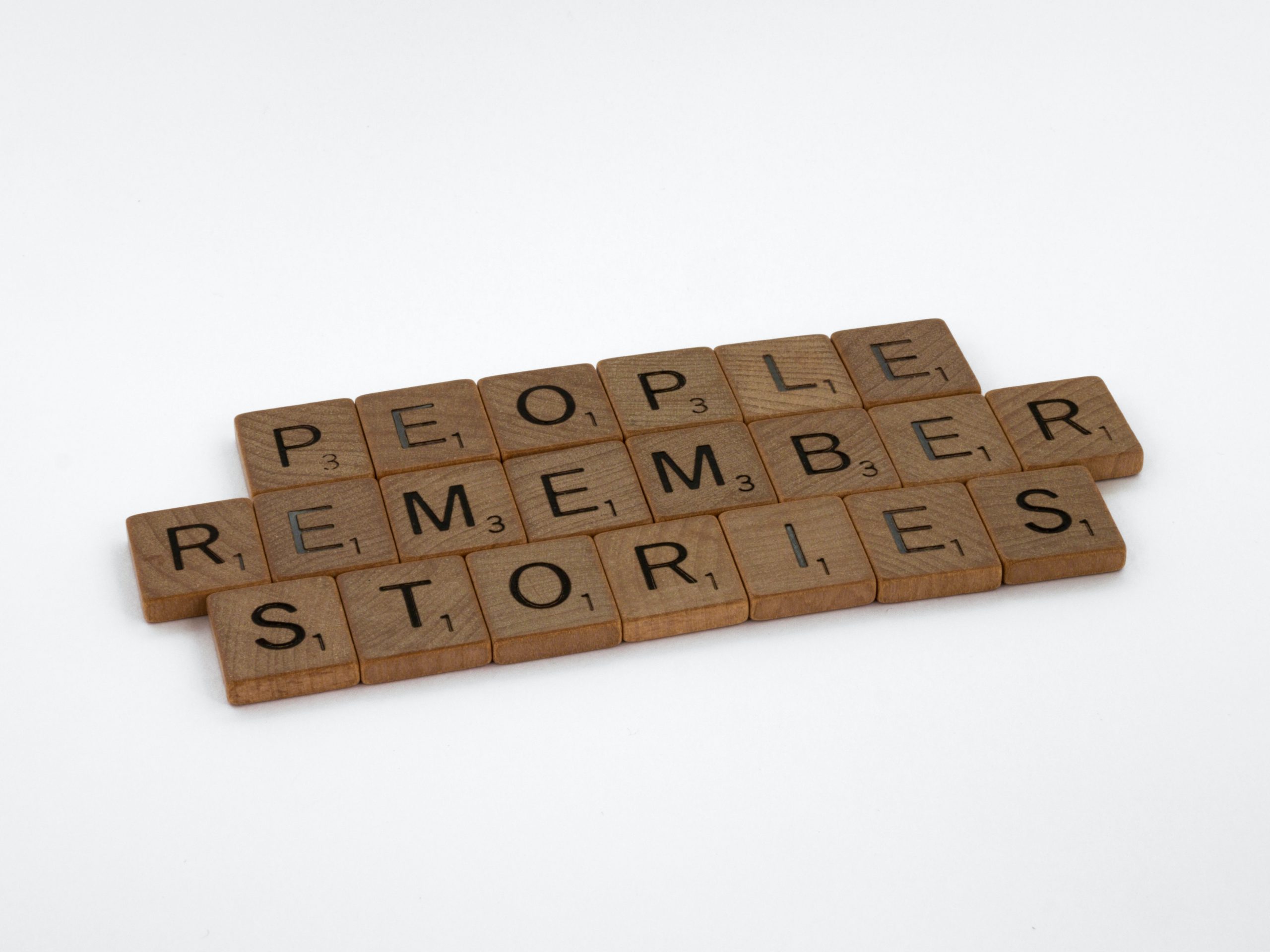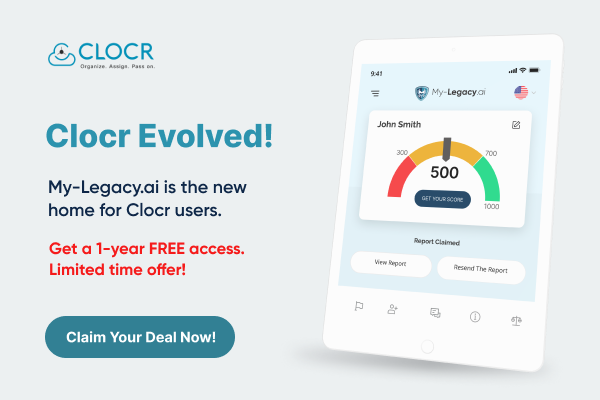Everyone wants to be remembered even after death, so leaving something behind for their family becomes necessary. Today, more and more people are planning their Digital Legacy. Simply put, you can think of Digital Legacy as your identity, which lives on the internet even after your demise.
In the past few years, internet users have seen considerable growth. Most of our routines, investments, and activities have gone digital, from social media profiles to cloud storage to crypto wallets. These social media accounts, cloud storage, crypto wallets, etc., are known as Digital Assets. And they are a vital part of your Digital Legacy.
Most people forget to include their Digital Legacy in their Estate Plan. That is why we are here to tell you everything you need to know about Digital Legacy and why you should make it a part of your Estate Plan.
Table of Contents
What is Digital Legacy Planning?
What is Digital Legacy?
Why is Digital Legacy important?
How to create a Digital Legacy Plan?
Things to remember while creating a Digital Legacy Plan
Why is Digital Legacy Planning Important?
Benefits Of Digital Legacy Planning
How to manage your Digital Legacy?
Why protect your Digital Legacy?
Are you concerned about your Digital Afterlife?
How is Covid19 changing the way we discuss death?
How to plan your Digital Afterlife?
How to talk about Digital legacy planning with family members?
End of Life Planning checklist
What is a Digital Executor?
What is the role of a Digital Executor?
How to choose a Digital Executor?
Who needs Digital Legacy Planning?
Digital Legacy Planning for Millennials
Digital Legacy planning for influencers
Digital Legacy Planning for senior citizens
How To Pass On Your Family Legacy?
What is Digital Legacy Planning?
We all have a Digital Life which we leave behind. It means our Digital Assets( social media accounts, photos, videos, and personal files in cloud storage) are vulnerable after our death. Digital Legacy Planning ensures your Digital Assets are secure even after your passing.
Additionally, Digital Legacy Planning includes instructions regarding what to do with your Digital Assets and who can access them after your death. It ensures your privacy is intact and your digital data are secure even after your demise.
What is Digital Legacy?
Dealing with your Digital Assets after death is becoming more forefront in people’s minds. We often read stories of tragic circumstances where protecting Digital Assets after death could have prevented heartache for a family. Talking about Digital Legacy is now necessary.
Your Digital Legacy mainly incorporates the Digital Assets that you leave behind. It might include social media profiles, photos, videos, blogs, websites, etc. It holds sentimental rather than monetary value to the deceased’s family members. You can think of Digital Legacy as your identity that lives even after you die.
Why is Digital Legacy important?
Your Digital Legacy consists of your Digital Assets and much more. It means if you have a social media account (Facebook, Twitter, Pinterest, LinkedIn, Google Plus, or Instagram), it forms a part of your Digital Legacy. But, Digital Legacy is more than just social media accounts.
Digital Legacy includes all your Digital Assets such as photos, videos, graphics, certificates and documents, cloud storage, and crypto-wallets. Your photos and videos become sentimental memories, whereas the crypto wallets hold financial value to your family. Planning your Digital Legacy can support your family after your death by allowing them to revisit your memories.
How to Create a Digital Legacy Plan?

A Digital Legacy is more than just photos and videos. Creating a Digital Legacy Plan means collecting all the documents that remind your family members of your achievements, memorable events, progression in life, and everything in between.
Documents to include in your Digital Legacy:
- Birth certificate
- Photos and videos
- College degrees and any other educational/professional certificates
- Information regarding hobbies and other interests
- Career achievements
- Medical and end-of-life care details
- Cryptocurrencies
- Digital assets such as login credentials of various social media handles.
Things to remember while creating a Digital Legacy Plan
Here are a few things to remember while creating of Digital Legacy Plan:
- Backup all data such as photos, videos, important documents, etc., from your cloud storage and onto a hard drive. You can secure your digital data for your loved ones.
- Leverage Digital Legacy Planning tools offered by Digital Account providers, such as Facebook’s legacy features and Google’s Inactive Account Manager.
- Most importantly, have an open conversation with your executor and family while planning your Digital Legacy.
- Include a sensitive topic to discuss with your loved ones.
Why is Digital Legacy Planning Important?

Digital Legacy Planning is becoming critical today. We share pictures and videos on several social media platforms and use cloud storage for our documents, certificates, and photos. They could have significant sentimental and financial value.
Thus, Digital Legacy Planning is vital to secure your Digital Assets and decide what should be done with them after your death ( for instance, you can leave instructions to delete your online accounts or memorialize them).
Planning your Digital Legacy will allow your family to hold on to a piece of your life even when you are gone. In this pandemic, you can leave behind a trail of memories for your family, providing them peace of mind even at their worst.
Suppose you are fond of sharing memories and experiences with your loved ones. In that case, you can think of Digital Legacy Planning as making arrangements for them to revisit your memories whenever they miss you.
Benefits Of Digital Legacy Planning
Digital Legacy Planning comes with multiple benefits such as:
- Getting your Digital Life in order.
- Avoid stressful situations where your family can’t access your online accounts.
- Helping your future generation to get familiar with their ancestors.
- Supporting your family even after your death.
- Having control over your Digital Assets in case of your demise (leaving instructions for your online accounts)
How to Manage your Digital Legacy?
- Inventory for your Digital Assets
- Name a trusted Digital Executor
- Make sure your legal documents address your Digital Legacy
- Keep your Digital Legacy Plan updated
You might also be interested in:
Why protect your Digital Legacy?
Protecting your Digital Legacy can prevent identity theft. Creating a Digital Legacy Plan is akin to watching your Digital Legacy after your death. It helps your family know exactly how your account should be after your demise.
Different Digital Platforms offer various Legacy tools; for instance, the Facebook Legacy policy offers to memorialize your account after your death. Similarly, the Google Legacy policy lets you choose what happens to your accounts when it’s inactive.
You can take advantage of these Legacy Policies and safeguard your Digital Assets for your loved ones.
Are you concerned about your Digital Afterlife?

Considering how much time we spend online, it’s obvious to be concerned about your Digital Afterlife. We share almost everything on our social media pages and store our important documents in cloud storage. But, what happens to the life we created on different Digital Platforms? This question can be bothersome for most of us.
It is where the Revised Uniform Fiduciary Access to Digital Assets Act (also known as RUFADAA) comes into play. RUFADAA is a statute granting access to an individual’s internet accounts to the Executor of an Estate or an attorney after death or incapacitation.
The primary purpose of RUFADAA’s enactment in most jurisdictions is to dictate how to manage someone’s Digital Assets after they die. The Executor or Trustee of a Decedent’s Estate can access and manage the estate’s Digital Assets and electronic communications under RUFADAA. The definition of digital asset or electronic communication can vary from state to state.
Preserving our Digital Legacy is vital. It can protect your Digital Assets and secure your personal information.
How is Covid19 changing the way we discuss death?
The pandemic has hit every individual, making the uncertainty of life quite clear. An untimely death can be torturous for your loved ones. Thus, planning your Digital Legacy can help your family cope with your sudden demise.
For instance, someone close to you suddenly passed away due to Covid. Then what happens to their Digital Assets? Are their loved ones given access to their accounts after their death? Digital Legacy Planning will help your family access and manage your Digital Assets in situations like these.
Now, death knocks untimely, and even after COVID recovery, incapacitation prevails for some. You cannot prevent death, and it can happen anytime to anyone due to COVID-19. Thus, it’s best to prepare for the worst.
How to Plan your Digital Afterlife?
Death is unpredictable, primarily due to COVID-19; we all suffer from losing loved ones. Thus, it is best to be prepared by planning your Digital Legacy and talking to your family members about it.
You can even create an End-of-life planning checklist to manage everything related to your digital afterlife. Planning your Digital Legacy will lift a huge burden off your family. It will ensure the security of your Digital Assets and bring peace to your family.
How to Talk about Digital legacy planning with family members?
Digital Legacy Planning means we are preparing for the unforeseen future. So, sit down with your family members and talk. Although it is a complex topic to discuss, you need to tell them why it’s vital for you and how you want the world to remember you.
For instance, you can express your concerns about your Digital Assets after your death. You can help them understand how Digital Legacy Planning can protect your digital data and prevent identity theft.
You can also make them understand how it will help them after you are gone. For example, you can tell your loved ones that Digital Legacy Planning will avoid situations where they can’t access your online accounts. Thus, it’s best to gather courage and talk to your family.
End of Life Planning checklist
You are preparing an end-of-life checklist to help your family even after your death. You can include a whole bunch of things you want. Here are some examples of things to have on your End of life Planning checklist.
- Digital Estate Planning– to manage your Digital Assets.
- Digital Legacy Planning– plan what happens to your Digital Assets after your death.
- Instructions related to Digital Assets and what you want for them (closing or memorializing online accounts)
- You can include your final wishes, such as funeral plans and arrangements.
What is a Digital Executor?
A Digital Executor is the person you name to manage your Digital Assets after your death. Your Digital Executor will access your digital documents, photos, videos, social media accounts, subscription accounts, and online bank accounts.
They manage and distribute your Digital Assets after your passing. However, in certain states, Digital Executor doesn’t automatically gain access to your Digital Assets after your demise. That is why it’s essential to name a Digital Executor and provide the details of your Digital Accounts in your Estate Plan.
What is the Role of a Digital Executor?
While planning your Digital Legacy, you can leave instructions for your Digital Executor regarding the following responsibilities.
- Archiving files- photos, videos, and documents
- Closing your online accounts, such as subscription services and social media
- Deleting files or erasing hard drives
- Informing online friends of your death
- Distributing your Digital Assets
You might be interested in reading:
How to Choose a Digital Executor?
Here are a few qualities to keep in mind while choosing your Digital Executor:
- They should have high organizational skills.
- Committed to following your wishes as you’ve spelled them out in your Digital Legacy Plan.
- Knows Digital Platforms and is comfortable using the internet
- Is patient, as the process may take some time and require engaging with many different companies
Who Needs Digital Legacy Planning?

Anybody active on social media uses cloud storage, has online shopping accounts, or uses online banking has some form of Digital Assets. Thus, if we look at millennials, GenZ, and influencers, they have a highly active Digital Life. That is why they need to plan their Digital Legacy.
Senior citizens, baby boomers, and boomers too have Digital Assets in some way or the other. For instance, the older generation might not be on social media, but they might be active on other Digital Platforms such as cloud storage or Ebook services.
Thus, we can say that Digital Legacy Planning is essential for everyone. Moreover, it ensures your loved ones can access these valuables even after your demise.
Digital Legacy Planning for Millennials
Millennials are often protective of their privacy. That is why they need Digital Legacy Planning. By planning their Digital Legacy, they can decide what Digital Data (emails, photos, videos, cloud storage, etc.) they want to share and choose a Digital Executor who can access them. It will ensure their privacy is respected even after their demise.
Digital Legacy Planning for Influencers
Influencers have a proactive Digital Life, which is why they need Digital Legacy Planning. It will help them plan their Digital Afterlife to secure their online data. Moreover, appointing a Digital Executor will ensure their Digital Legacy is taken care of after they die.
Digital Legacy Planning for senior citizens
Senior citizens are primarily unaware of the importance of Digital Legacy Planning. However, planning their Digital Legacy will not only safeguard their Digital Assets but will keep their memories alive even when they die. They can leave behind letters and stories for their future generations as well.
How To Pass On Your Family Legacy?
You are instilling family values in loved ones, and sharing your life experiences while alive is easy. But what about when you are gone? By planning your Digital Legacy carefully, you can continue to be a part of your loved ones’ lives even after your demise.
You can leave behind a video, letters, emails, photographs, and even your entire digital footprint to set an example for your family with the life you’ve led.




